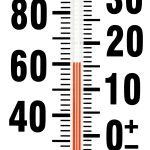As the temperatures rise, many people become increasingly reliant on their air conditioning units for maintaining a comfortable indoor environment.
However, many homeowners and occupants are unsure whether it’s better to keep the AC running constantly or to turn it off and on as needed.
This article will explore the pros and cons of both approaches and provide information to help you make an informed decision.
Table of Contents
Is it Bad to Keep Turning AC On and Off?
“Constantly turning your AC on and off, also known as short cycling, can cause unnecessary wear and tear on your air conditioning system.
This can lead to increased energy usage and higher electricity bills.
Additionally, it can shorten the lifespan of your AC unit and require more frequent repairs.
It is recommended to keep your AC on for longer periods of time, but at a higher temperature setting when you are not home to save energy and money.”
 Contrary to popular belief, turning your AC on and off is not inherently bad for the unit or for your energy consumption.
Contrary to popular belief, turning your AC on and off is not inherently bad for the unit or for your energy consumption.
In fact, it can be more energy-efficient to turn off the AC when you’re not at home or when the outside temperature is cool enough for open windows to provide natural ventilation .
However, the key to maximizing efficiency is to implement changes that optimize the performance of your air conditioning system, such as regular maintenance and proper thermostat settings .
Is it better for AC to run constantly or turn off and on?
Leaving your AC on all day, even on the auto setting, may not be the most efficient way to use your cooling system.
Constant temperature fluctuations and adjustments can force air conditioners to work harder than turning them off for a few hours.
Additionally, running the system constantly can put undue stress on the cooling unit, increasing wear and tear.
On the other hand, turning the AC off and on at appropriate times can help save energy and prolong the life of your unit.
Can you damage an AC unit by turning it on and off?
While turning your AC on and off is not inherently damaging, it’s important to maintain proper settings to minimize wear and tear on the unit.
For example, leaving the fan on the “on” setting can produce about 200 more cycle hours and increase the risk of the unit’s coils freezing due to moisture buildup .
To avoid potential damage, it’s recommended to use the “auto” setting, which generates shorter cooling cycles and reduces the risk of freezing.
Does turning the AC on and off cost more?
Turning your AC on and off can actually save energy and money compared to running the system constantly.
If you have a central AC system or a mini-split that uses a thermostat, you can save energy by adjusting the thermostat settings and turning off the system when it’s not needed .
For instance, raising your thermostat 3-5 degrees before you leave for work can help reduce energy consumption.
Does turning on and off the AC waste electricity?
Although turning your AC on and off may cause it to work harder initially when it’s turned back on, the energy savings from not running the unit constantly can outweigh the short-term increase in electricity use .
Therefore, turning your AC on and off as needed can be an energy-efficient approach.
 Can you overuse an AC unit?
Can you overuse an AC unit?
Running an AC unit all day can lead to overuse and cause it to wear out faster .
This can result in higher energy costs and damage to the unit . Overuse can also cause your AC to freeze up or malfunction, leading to higher repair costs .
To prevent overuse and extend the lifespan of your AC unit, it is recommended to give it a rest periodically by turning it off or adjusting the temperature setting when you are not home .
Additionally, regular maintenance such as cleaning or replacing air filters can improve the efficiency of your AC unit and prevent overuse .
Best time to turn on AC to save money
The best time to turn on your AC varies depending on your location and climate.
In areas with high humidity or extreme heat, it’s best to run your AC during the hottest part of the day to maintain a comfortable indoor temperature .
However, in drier climates, it’s often more effective to run the AC during the cooler parts of the day or night when temperatures drop .
In addition to timing, proper thermostat settings can help optimize energy usage and reduce costs.
It’s recommended to keep the thermostat set at a comfortable temperature, such as 78°F or higher, during the day when you’re away from home and lower it when you’re there .
A programmable thermostat can be especially useful for scheduling temperature changes to maximize efficiency and reduce energy consumption .
 Conclusion-Is it bad to keep turning ac on and off?
Conclusion-Is it bad to keep turning ac on and off?
In summary, turning your AC on and off can be an efficient way to save energy and reduce costs, as long as you implement the appropriate maintenance and thermostat settings.
Leaving the AC on constantly can lead to energy waste and increased wear and tear on the unit, while turning it off and on at appropriate times can prolong its life and save you money.
Additionally, choosing the best time to turn on your AC and optimizing your thermostat settings can help you maintain a comfortable indoor environment while keeping your energy usage in check.
FAQ
Is Constantly Turning Your AC On and Off Harmful to Your System?
Answer: Contrary to popular belief, turning your AC on and off frequently is not inherently bad for the unit or for your energy consumption.
In fact, it can be more energy-efficient to turn off the AC when you’re not at home or when the outside temperature is cool enough for open windows to provide natural ventilation .
However, it’s important to maintain proper settings to minimize wear and tear on the unit.
For example, leaving the fan on the “on” setting can increase the risk of the unit’s coils freezing due to moisture buildup
Should I leave my AC on all day?
Answer: Leaving your AC on all day, even on the auto setting, may not be the most efficient way to use your cooling system.
Constant temperature fluctuations and adjustments can force air conditioners to work harder than turning them off for a few hours.
Additionally, running the system constantly can put undue stress on the cooling unit, increasing wear and tear.
Can turning my AC off and on save me money on my energy bill?
Answer: Turning your AC on and off can actually save energy and money compared to running the system constantly.
If you have a central AC system or a mini-split that uses a thermostat, you can save energy by adjusting the thermostat settings and turning off the system when it’s not needed .
For instance, raising your thermostat 3-5 degrees before you leave for work can help reduce energy consumption .
What’s the best time to turn on my AC to save money?
Answer: The best time to turn on your AC varies depending on your location and climate.
In areas with high humidity or extreme heat, it’s best to run your AC during the hottest part of the day to maintain a comfortable indoor temperature .
However, in drier climates, it’s often more effective to run the AC during the cooler parts of the day or night when temperatures drop .
Can I damage my AC unit by turning it on and off?
Answer: While turning your AC on and off is not inherently damaging, it’s important to maintain proper settings to minimize wear and tear on the unit.
For example, leaving the fan on the “on” setting can produce about 200 more cycle hours and increase the risk of the unit’s coils freezing due to moisture buildup.
To avoid potential damage, it’s recommended to use the “auto” setting, which generates shorter cooling cycles and reduces the risk of freezing.








